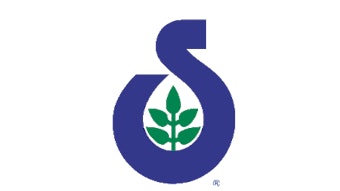Takasago International Corp. posted a profit and sales rise in the second quarter, although it cited growing signs of a sluggish global economy amid financial concerns in Europe as well as a growth slowdown in Asia, deflation in Japan and fierce competition in its fragrance markets.
Although the Japanese economy showed moderate economic recovery in the context of reconstruction demand, Takasago noted: “the state of deflation is still continuing, and no optimism is warranted yet on the economy.” The company also added concerns of an "overseas economic downturn" as Japan also tries to battle deflation and the high value of the yen.
In the fragrance industry, markets in China and Southeast Asia continued to grow steadily, but Takasago noted the “situation of the overall demand remains severe. With the trend of oligopolization of shares by world leaders in flavor and fragrance companies including the company, as well as business development in Japan where the market is matured, there continues to be fierce competition both domestically and globally.”
For the second quarter ended September 30, Takasasago’s net sales were ¥60.2 billion, up 0.4% from a year ago. Meanwhile, second-quarter net income rose 0.7% to ¥2.64 billion from ¥2.62 billion a year earlier.
By segment, the company’s flavor business saw particularly good performance by the Singaporean subsidiary with net sales of ¥37.5 billion, up 1.2% from the same year-ago period. The fragrance business in Asian subsidiaries expanded, but due to the impact of the high value of the yen, the unit’s net sales slipped 0.1% to ¥13.6 billion. The aroma chemical business had weak performance by Spanish subsidiaries with net sales of ¥4.6 billion, down 4.5% from the same period last year. The fine chemical business showed steady performance in medicinal intermediates with net sales of ¥3.7 billion, up 0.9% from the same period last year.
In Japan, the company’s flavor business was weak compared to the previous quarter, posting net sales of ¥35.8 billion, down 0.3% from the same period, as operating income dropped 6.2% to ¥2.82 billion. In the Americas, due primarily to an increase in the cost of ingredients for American subsidiaries, net sales rose 1.5% to ¥9.89 billion, up 1.5% from the same period last year, although operating income plunged 90.2% to ¥9 million. In Europe, with the weak performance of Spanish subsidiaries, net sales fell 9.8% to ¥6.71 billion. In Asia, Singaporean and Chinese subsidiaries performed well with net sales of ¥7.71 billion, up 13.6% from the same period last year, and operating income was ¥1 billion, up 10.7% from the same period a year earlier.








